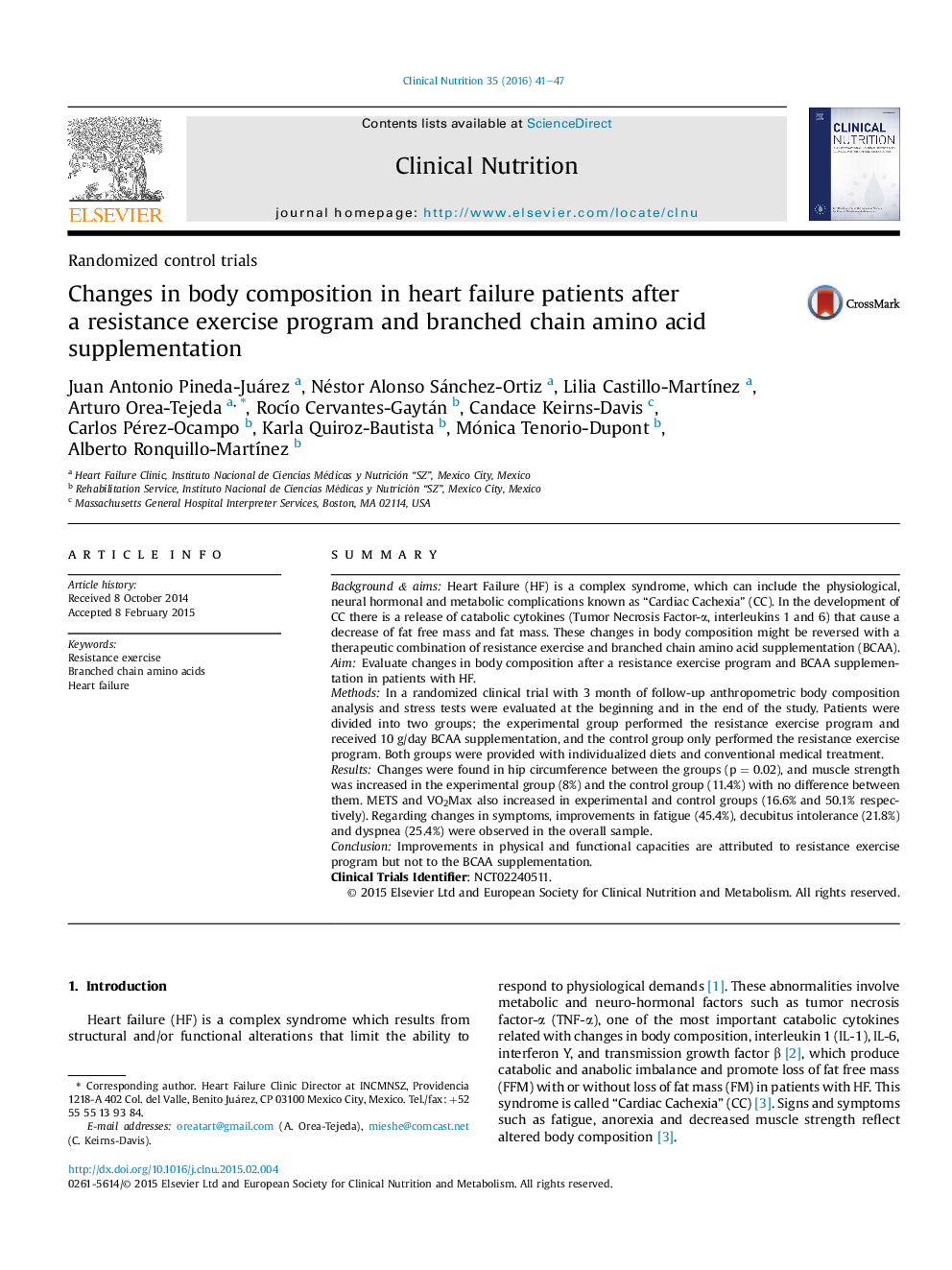| Article ID | Journal | Published Year | Pages | File Type |
|---|---|---|---|---|
| 5871324 | Clinical Nutrition | 2016 | 7 Pages |
SummaryBackground & aimsHeart Failure (HF) is a complex syndrome, which can include the physiological, neural hormonal and metabolic complications known as “Cardiac Cachexia” (CC). In the development of CC there is a release of catabolic cytokines (Tumor Necrosis Factor-α, interleukins 1 and 6) that cause a decrease of fat free mass and fat mass. These changes in body composition might be reversed with a therapeutic combination of resistance exercise and branched chain amino acid supplementation (BCAA).AimEvaluate changes in body composition after a resistance exercise program and BCAA supplementation in patients with HF.MethodsIn a randomized clinical trial with 3 month of follow-up anthropometric body composition analysis and stress tests were evaluated at the beginning and in the end of the study. Patients were divided into two groups; the experimental group performed the resistance exercise program and received 10 g/day BCAA supplementation, and the control group only performed the resistance exercise program. Both groups were provided with individualized diets and conventional medical treatment.ResultsChanges were found in hip circumference between the groups (p = 0.02), and muscle strength was increased in the experimental group (8%) and the control group (11.4%) with no difference between them. METS and VO2Max also increased in experimental and control groups (16.6% and 50.1% respectively). Regarding changes in symptoms, improvements in fatigue (45.4%), decubitus intolerance (21.8%) and dyspnea (25.4%) were observed in the overall sample.ConclusionImprovements in physical and functional capacities are attributed to resistance exercise program but not to the BCAA supplementation.Clinical Trials Identifier: NCT02240511.
